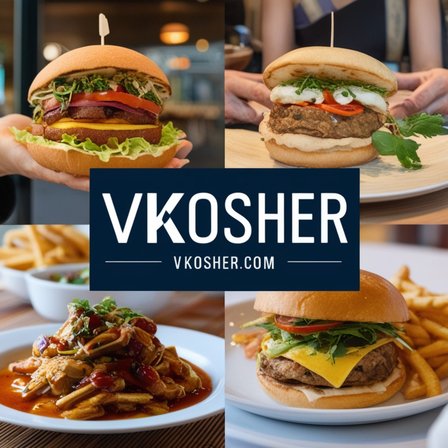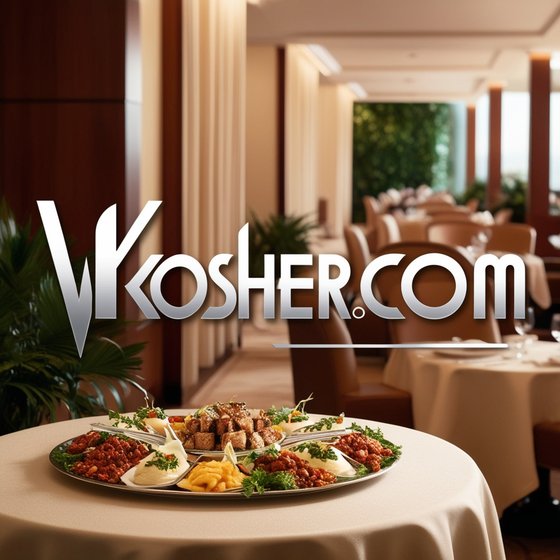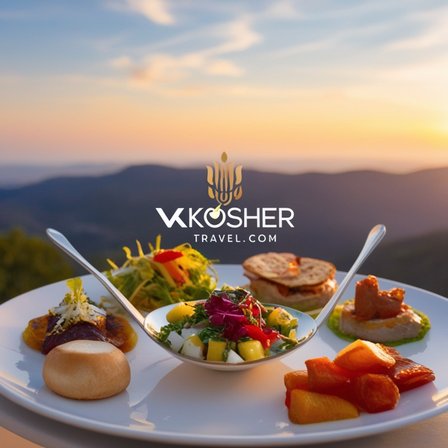Kosher Cooking Classes: A Journey Through Tradition and Flavor
Kosher cooking is more than just a method of preparing food; it is a deep-rooted tradition that has been passed down through generations, embodying the principles of Jewish dietary laws and culture. For many, kosher cooking is a way to connect with their heritage, while for others, it represents an opportunity to explore a new culinary frontier. Kosher cooking classes provide a unique platform where both seasoned cooks and curious beginners can immerse themselves in this rich culinary tradition.
The Essence of Kosher Cooking
At its core, kosher cooking adheres to the Jewish dietary laws known as Kashrut. These laws dictate which foods are permissible, how they should be prepared, and the combinations that are allowed. The rules are derived from the Torah, and their observance is a sign of devotion and respect for Jewish tradition. Kosher cooking classes are designed to introduce participants to these principles, teaching them not just how to cook, but also why these practices are significant.
Kosher cooking is characterized by its emphasis on purity, quality, and ethical treatment of animals. Meat and dairy products are never mixed, and there are specific guidelines for the slaughter of animals, which must be done humanely and with respect. The separation of meat and dairy extends to utensils, cookware, and even kitchen spaces. Kosher cooking classes often begin with an overview of these rules, providing students with a foundation of knowledge before they dive into the cooking process.
Exploring the Kosher Pantry
One of the first things participants will learn in kosher cooking classes is how to stock a kosher pantry. This involves understanding the various kosher symbols that certify products, as well as knowing which ingredients are commonly used in kosher cooking. Staples such as kosher salt, matzo meal, and various kosher-certified oils and spices become familiar tools in the kitchen. Instructors guide students through the selection of these ingredients, emphasizing the importance of using certified kosher products to maintain the integrity of the dishes being prepared.
In kosher cooking, the quality of ingredients is paramount. Fresh, seasonal produce is often highlighted, along with kosher-certified meats and dairy products. Kosher cooking classes place a strong emphasis on sourcing these ingredients from trusted suppliers, ensuring that every dish is not only delicious but also adheres to the highest standards of kosher law.
The Art of Kosher Cooking
Once the basics are covered, kosher cooking classes delve into the art of creating traditional and contemporary dishes that adhere to kosher guidelines. From classic Jewish recipes like challah, matzo ball soup, and brisket to modern interpretations of kosher cuisine, students are exposed to a wide range of dishes that showcase the versatility and richness of kosher cooking.
Challah, a braided bread traditionally eaten on the Sabbath and Jewish holidays, is often a focal point in kosher cooking classes. Students learn the techniques for kneading, braiding, and baking this iconic bread, as well as the significance of its presence at the Jewish table. The process of making challah is not just about the end product; it is a meditative practice that connects the cook with generations of Jewish women who have performed this ritual for centuries.
Matzo ball soup, another staple of Jewish cuisine, is also commonly featured in kosher cooking classes. This dish, made from matzo meal, eggs, water, and fat, is a comfort food that has been enjoyed by Jewish families for generations. Instructors teach students how to achieve the perfect texture for matzo balls—light and fluffy or dense and hearty—depending on personal preference. The soup itself, often made with chicken broth and vegetables, is a testament to the simplicity and depth of flavor that kosher cooking embodies.
Brisket, a popular dish for holidays and special occasions, is another highlight of kosher cooking classes. This cut of beef, slow-cooked to tender perfection, is often served with root vegetables and a rich gravy. Students learn the techniques for braising and seasoning the meat, ensuring that it is flavorful and moist. The preparation of brisket is a lesson in patience and attention to detail, qualities that are essential in kosher cooking.
Modern Kosher Cuisine
While traditional recipes are a cornerstone of kosher cooking, many kosher cooking classes also explore modern interpretations of kosher cuisine. This includes dishes that incorporate global flavors and contemporary cooking techniques while adhering to kosher guidelines. For example, students might learn how to prepare sushi using kosher fish, or how to make a dairy-free dessert that is both kosher and decadent.
The fusion of kosher traditions with modern culinary trends is a growing movement within the Jewish community. Kosher cooking classes often reflect this by introducing participants to innovative recipes that push the boundaries of kosher cooking. These classes may feature guest chefs who specialize in modern kosher cuisine, offering a fresh perspective on what it means to cook kosher in the 21st century.
The Cultural Significance of Kosher Cooking
Kosher cooking is not just about food; it is deeply intertwined with Jewish culture and religious practice. Many kosher cooking classes incorporate discussions about the cultural and spiritual significance of the dishes being prepared. For example, students might learn about the symbolic foods of Passover, such as matzo and bitter herbs, and how they relate to the story of the Exodus. These classes provide a space for participants to explore their Jewish identity through the act of cooking, creating a deeper connection to their heritage.
The social aspect of kosher cooking is also emphasized in these classes. Cooking and sharing kosher meals are central to many Jewish celebrations and gatherings. Kosher cooking classes often encourage students to cook together, fostering a sense of community and collaboration. The act of preparing and enjoying a kosher meal becomes a shared experience that brings people together, whether they are family, friends, or strangers.
Kosher Cooking for All
Kosher cooking classes are not limited to those who observe Jewish dietary laws. These classes are open to anyone interested in learning about kosher cuisine, whether for religious reasons, health considerations, or simply a love of cooking. Many people are drawn to kosher cooking because of its emphasis on quality ingredients, ethical food practices, and the rich cultural history behind the dishes.
For non-Jews, kosher cooking classes offer a unique opportunity to learn about a different culinary tradition and to gain a new perspective on food and cooking. The principles of kosher cooking, such as the separation of meat and dairy, can be applied to various dietary practices, making these classes relevant to a wide audience.
Kosher Cooking and Health
Kosher cooking is often associated with health benefits, particularly for those who follow a kosher diet for religious reasons. The dietary laws of kashrut naturally promote a balanced diet, with an emphasis on fresh, unprocessed foods. Many kosher cooking classes focus on healthy cooking techniques, such as grilling, steaming, and roasting, which preserve the nutritional value of ingredients while enhancing their flavor.
In addition to traditional dishes, kosher cooking classes may also introduce participants to kosher-certified organic and gluten-free products, catering to those with specific dietary needs. The intersection of kosher and health-conscious cooking is a growing trend, and many kosher cooking classes are responding by offering courses that focus on healthy, kosher eating.
Bringing Kosher Cooking Home
One of the goals of kosher cooking classes is to equip participants with the skills and confidence to cook kosher meals at home. Instructors often provide practical tips for maintaining a kosher kitchen, such as organizing separate areas for meat and dairy, using kosher-certified cleaning products, and understanding the process of kashering utensils and cookware.
Students leave these classes not only with new recipes but also with a deeper understanding of what it means to keep a kosher kitchen. The knowledge gained in kosher cooking classes can transform the way participants approach food preparation, making kosher cooking an integral part of their daily lives.
Conclusion: The Future of Kosher Cooking
As kosher cooking continues to evolve, so too do kosher cooking classes. These classes are more than just a place to learn recipes; they are a gateway to understanding and preserving Jewish culinary traditions. Whether through traditional recipes or modern innovations, kosher cooking classes offer a rich, immersive experience that connects participants to a vibrant and enduring cultural heritage.
In the years to come, kosher cooking classes will likely continue to expand, incorporating new trends and techniques while staying true to the principles of kashrut. For those who participate, these classes are not just an opportunity to learn how to cook—they are a chance to explore a unique and meaningful culinary tradition that has stood the test of time.




